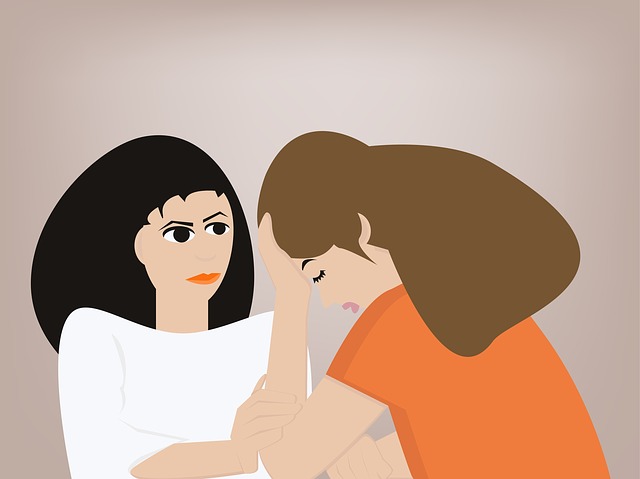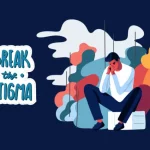
Image Credit: Pixabay
People who suffer from or have suffered from mental illness are twice victimized. They suffer from their condition as well as the stigma with which society surrounds them.
They are treated with distrust, fear, and prejudice. Family, friends, employers, and others avoid them or treat them with a pity they confuse with compassion.
They are denied jobs, adequate shelter, and personal dignity. They, then, find themselves marginalized and isolated. They find themselves combating the stigma of mental illness on their own, a fight that takes the emotional stability and self-esteem they may lack.
8 ways to show you are no less deserving of love and respect
According to California’s MHSA Stigma and Discrimination Advisory Committee, “Stigma refers to attitudes and beliefs that motivate individuals to fear, reject and avoid those who are labeled, diagnosed or perceived to have a serious mental illness – often anyone who is seen as ‘different’.”
If this describes you or someone you know or love, you should consider what can be done to combat the stigma of mental illness:
1. Get your act together
It may be easier said than done and it may not sound compassionate, but victims should become assertively healthy.
If the “healthy” world won’t come to you, you may have to get into it. It builds strength and esteem if you volunteer, mentor, and share. If you live in the larger world, it must come to terms with you. This often means getting over fears to socialize, speak, and admit. It means working on and from self-acceptance towards a leadership role. And, the social contract calls for them to return your efforts in kind.
2. Be the compassionate person you would have others be
You might sustain your health in support groups. Admittedly, it takes some time and courage to develop this openness. But, you want to take that sense of mutual respect and willingness to share out to the street.
Simple acts of affection, understanding, and listening mean a great deal to others. No matter how ill, those victims require that human touch, physical or emotional. Your show of compassion is not earned by others, but that makes it more appreciated.
3. Tell your story
It doesn’t hurt anyone for you to talk about mental illness. It takes the right tone and vocabulary to avoid boring others. But, where and when the opportunity presents itself, it serves you and others to explain the facts of mental illness.
It’s a learning opportunity for everyone involved. It’s good for you to hear yourself take a measure of yourself, and it’s good for others to hear an unvarnished history. It helps if you approach it as sharing and not teaching.
4. Speak up and talk back
Rude and inconsiderate people need correcting. If their words hurt or their silence wounds, it’s your place as a victim of mental illness and of their words to clear things up.
There is no advantage to you in responding in the same way. It’s another learning experience to help them understand the illness, its causes, and effects. Bipolar disorder, depression, schizophrenia are less stigmatizing than the slang or euphemisms that people use. It is what it is, and it is better understood with a clear explanation.
5. You have the power
Dr. Phil McGraw told Oprah.com, “you have power over your reactions. So, if there is a person in your life who isn’t treating you with the respect and consideration you deserve, you have a couple of decisions to make. Are you willing to accept accountability, and do you really want to make a change? If the answer is yes, then you should ask yourself: ‘What am I doing to elicit this person’s behavior or to allow it to continue?’ Even if you think you aren’t doing a thing, your inaction is speaking for you.”
You have the power to position yourself as worthy of love and respect. It may take time and effort, but if you can see that place, you should be able to reach it.
6. Be kind, not servile
When you are friendly and courteous to others, they should respond in the same way. That’s the human contract. Smiles, hugs, and firm handshakes, these actions signal welcome and respect. So, extending your hand should provoke a proffered hand in turn.
But, being kind differs from waiting on them or giving too much of yourself. If your offer of compassion and kindness is rejected, you should move on to those willing to respond in kind. If you are willing to give without a price, you lose value. The more you put in front of unresponsive or biased people, the less they will appreciate it.
7. You can still say, “No!”
If you are deserving of love and respect, it’s because you have value. If a victim of mental illness, you may be damaged, but you are whole in your own way. “Differently-abled” as it were. And, while you may still be seeking a firm footing, you have a right to stand your ground.
You have a part to play in the human transaction. But, you are not responsible for their feelings toward you. You are not responsible for their disconnect, their contempt, or their poor judgment. So, there is an invisible line you have no need to cross. It’s not your obligation to excuse, justify, or apologize. It’s your task to be fair and reasonable, but it does not require you to become co-dependent.
8. Treat your problem
Mental illness doesn’t tend to disappear like a bad cold. You don’t fix it with a bandage, cast, or surgery. It takes rest, understanding, sharing, medication, and therapy. For the healthiest, there is some relief in diet and exercise. For others, it takes some maintenance medication. For others, the problem is deeper and more challenging.
The stigma demonstrated by others offers no sanctuary or support. Comprehensive care centers like Compass Health Center “pride ourselves on offering superior, compassionate, innovative treatment.” The refuge, then, for those with mental illness lies in the focused, structured, and effective care of experts in illness and recovery.
The teaching and the training
Compassionate care seeks to restore those with mental illness to a remembered place in society. You can break and reset a bone, but damaged muscle will not regenerate itself. So, you go through therapy to end-run the problem or find adaptation.
And, compassionate care uses social interaction, group sharing, one-on-one counseling, and more to help patients find their center of self-understanding and control. Advances are measured in your ability to say “no” without guilt and “yes” to what’s right and new for you.
Love and respect come to you from within and without. You gain in confidence and self-esteem, and you expect recognition and respect for that. You are trying to level the playing field, so you must say “no” to the bias, discrimination, and narrow-mindedness that would deny you.
It’s your role to be reasonable and accommodating. Asking more is an unfair expectation. But, when healthy enough to feel comfortable in your stance, you can do much to teach others to be better.
- Helping others understand that mental illness is a chronic disease goes a long way toward softening the edges of their fear and misunderstanding. Education always shrinks naivete and opposition.
- Helping others understand their accountability for fair and just treatment relieves their decision making and eases their responses.
- Helping others act appropriately models behavior towards you and to others with mental illness.
So, start combating the stigma of mental illness with the facts.
Statistics from the National Alliance of Mental Health are summarized here:
- 5% of Americans (43.8 million) experience mental illness in a given year.
- 0% (9.8 million) experience a seriously debilitating mental illness in a given year.
- 21,4% ages 13-18 experiences a severe mental disorder at some point during their life.
- 3% ages 8-15 experience a severe mental disorder at some point during their life.
- 1% of adults in the U.S. live with schizophrenia.
- 6% of adults in the U.S. live with bipolar disorder.
- 9% (16 million) had at least one major depressive episode in the past year.
- 1% of adults in the U.S. experienced an anxiety disorder including posttraumatic stress disorder, obsessive-compulsive disorder, and specific phobias.
- Among the 20.2 million adults in the U.S. who experienced a substance use disorder, 50.5%—10.2 million adults—had a co-occurring mental illness.
Awareness may begin with acceptance of the incidence and frequency, but combat is necessary when you consider the social expenses of stigma: the millions spent on care and hospitalization, the high rate of suicide, the crowding in homeless shelters, the crush of the prison population, and more. Each and all offer evidence of the “commonness” of mental disorders and the inclination of too many to stigmatize the ill.
About The Author:
Stacey Smith is the freelance health writer. She is passionate to write about women’s health, dental health, diabetes, endocrinology and nutrition and provide in-depth features on the latest in health news for medical clinics and health magazines.




![[Infographic] Love & Debt Infographic](https://www.safeandhealthylife.com/wp-content/uploads/2017/03/Infographic.png)